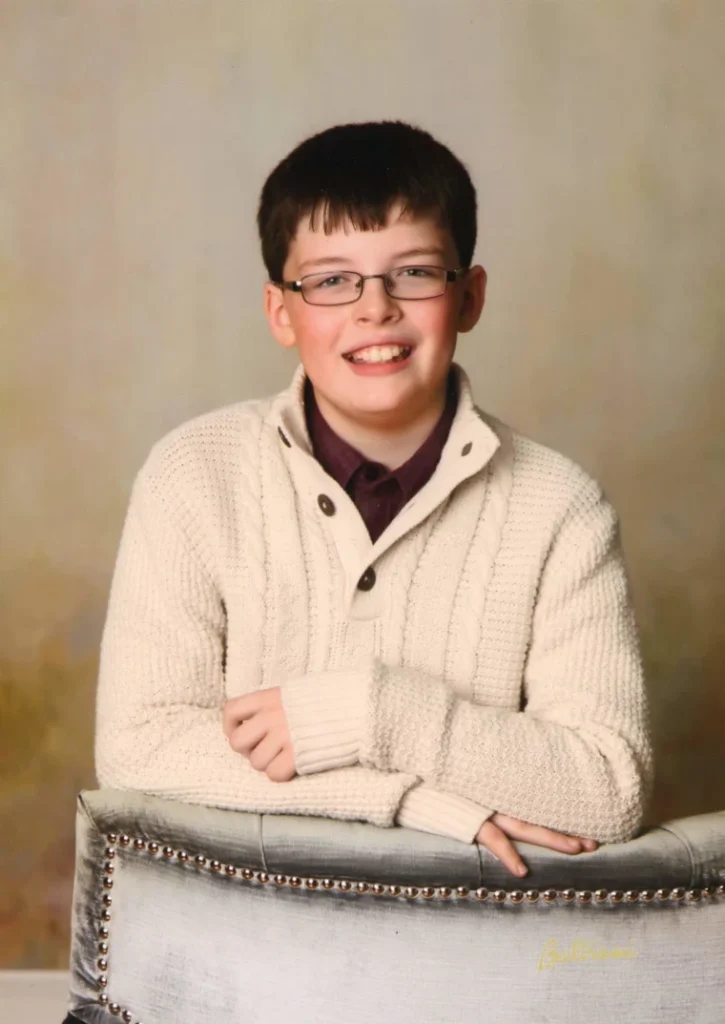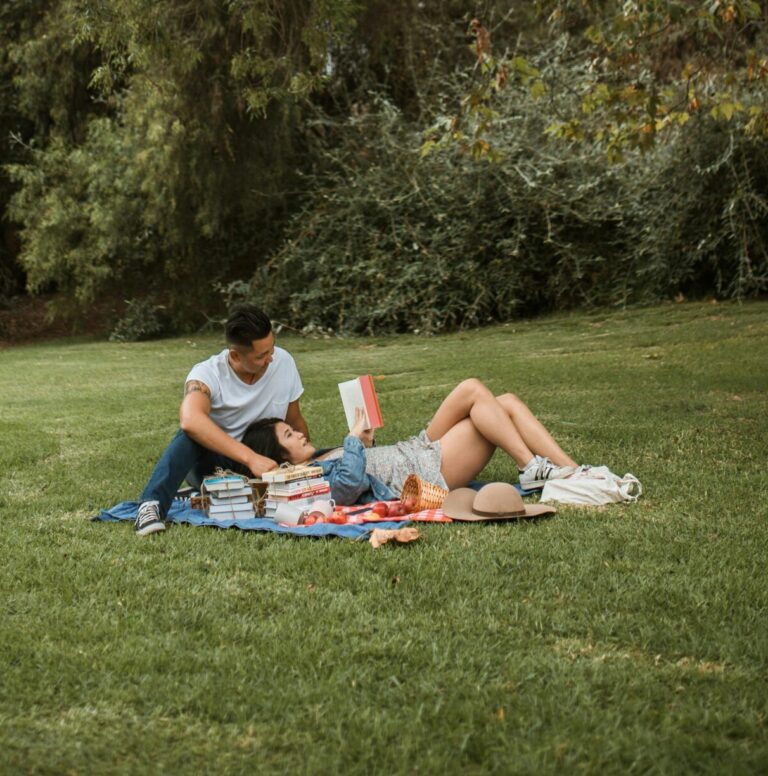Discover how a poem by 10-year-old Benjamin Giroux gave a voice to autism and inspired people around the world to say, “I am odd too.”
There’s something special about poetry—the way it explores the spaces between what is said. While other forms of writing focus on description and explanation, poetry is almost exclusively about feeling and connection, and expressing the inexpressible.
For young Benjamin Giroux from Plattsburgh, New York, this meant gaining the opportunity to do something incredible. He was able to put the often complex emotions he felt into words for the first time.
What began as a straightforward school assignment quickly turned into a global literary phenomenon.
Poetry and Expression in the Classroom
Learning about poetry is something most of us remember from school. We probably also remember writing a bit of poetry ourselves – maybe it even turned into a lifelong pursuit. For Benjamin Giroux, aged 10 in 2016, this wasn’t really something he’d considered before. But he was willing to give it a shot.
His teacher gave Benjamin and his classmates a prompt. They would each write a poem about themselves, covering eighteen lines of verse. The poem would begin with the words “I am”; the next line would start “I wonder,” the third “I hear,” the fourth “I see,” and so on.
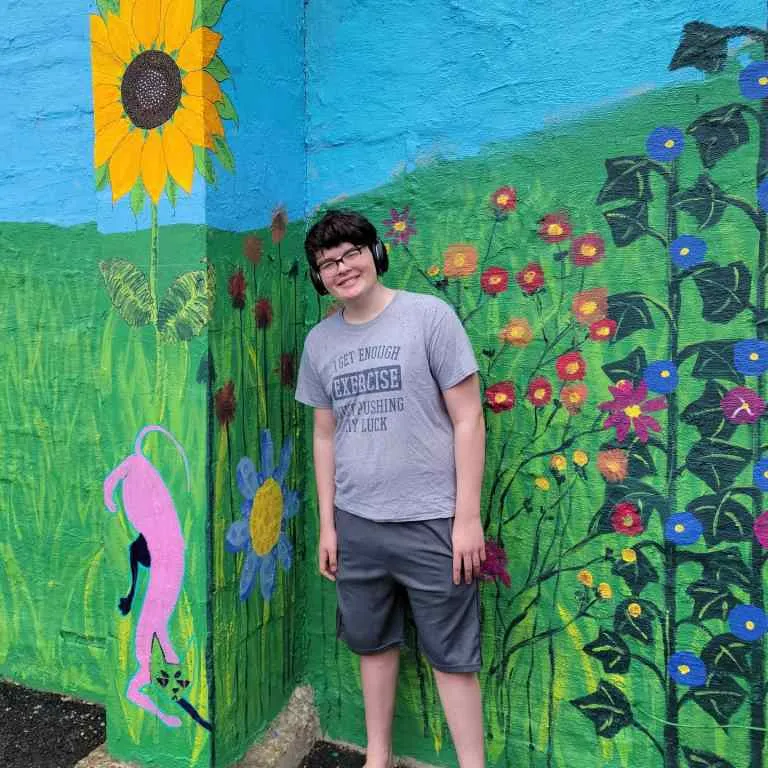
From here, Benjamin and his classmates were free to express themselves however they wanted. The idea was to map out the complex network of sensations and emotions that make up the childhood experience. For Benjamin, however, it was about to become a point of connection between himself and people from around the world.
Benjamin’s Poem – I am Odd
Here’s what Benjamin created in class that day:
I am odd, I am new, I wonder if you are too
I hear voices in the air
I see you don’t, and that’s not fair
I want to not feel blue
I am odd, I am new
I pretend that you are too
I feel like a boy in outer space
I touch the stars and feel out of place
I worry what others might think
I cry when people laugh, it makes me shrink
I am odd, I am new
I understand now that so are you
I say I, “feel like a castaway”
I dream of a day that that’s okay
I try to fit in
I hope that someday I do
I am odd, I am new.
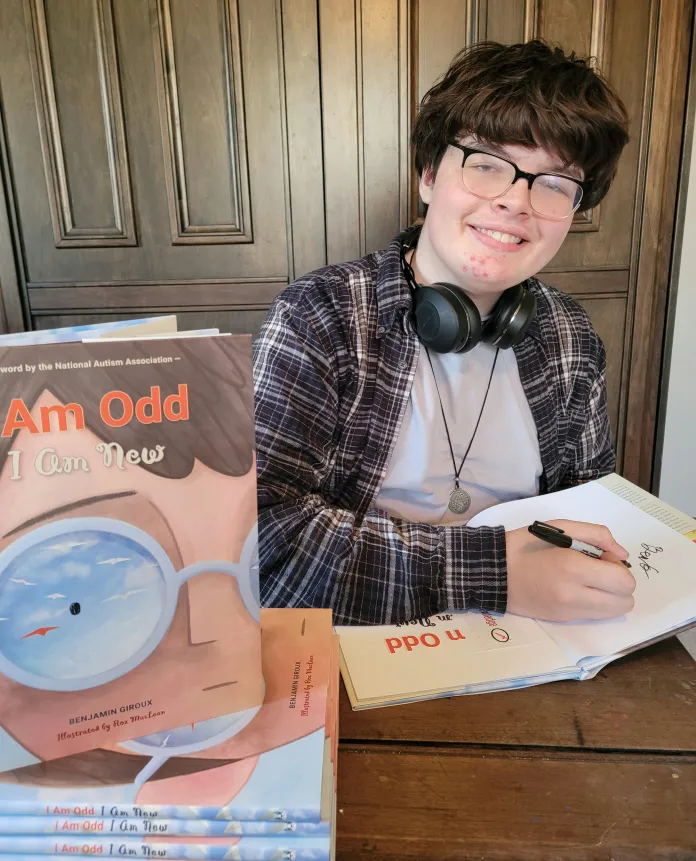
There’s something undoubtedly moving about Benjamin’s work.
At its core, there is a feeling of separation, and the idea that the poem’s author feels somehow disconnected and set apart from the world around him.
But there is hope too, and empathy, and a message that is positive, even if it is also poignant.
Benjamin’s parents were touched by the poem and shared it online with their son’s permission. Almost immediately, the young poet’s work began to make waves around the world, with people getting in touch with their own positive responses.
Connecting with the Public
Momentum really began to gather when Benjamin’s work was picked up by the National Autism Association. When they shared the poem on their Facebook page, it went viral and was shared more than 40,000 times by 2019. By 2021, it had been translated into more than 21 languages.
Often accompanied by the hashtag #OddToo, the poem elicited emotional responses from many readers. “Love ur poem,” one reader said. “People r not odd. We r unique – we r individual. You r u – Be proud.”
“I loooooooove it,” said another. “Thank you for writing it and sharing it.”
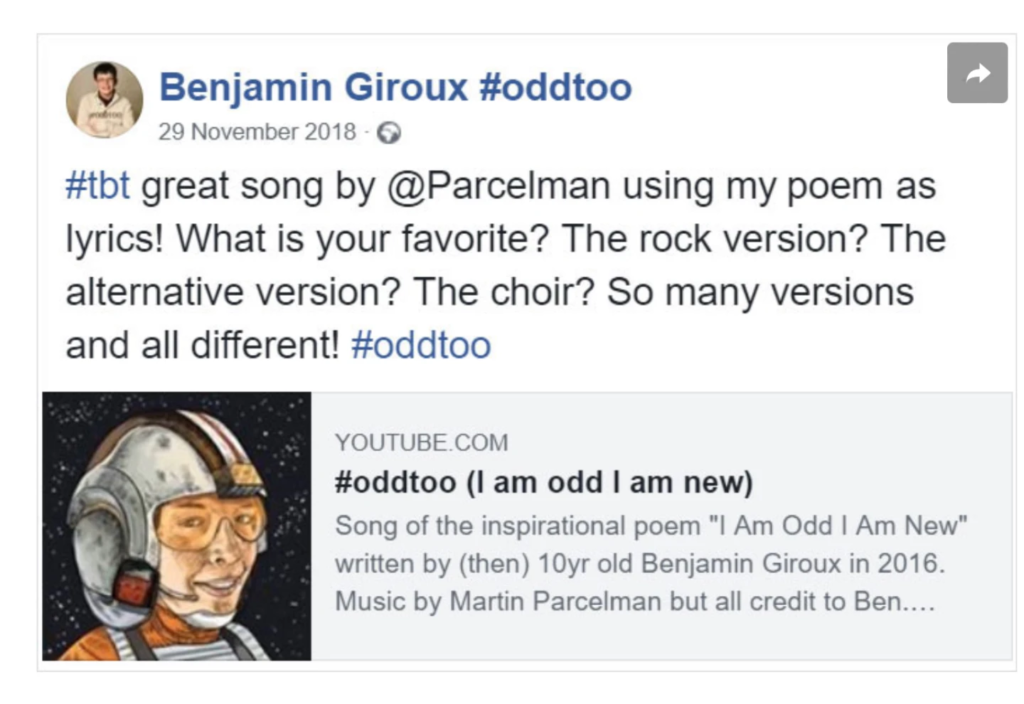
Benjamin was a little shy about discussing his poem, but the warm responses led to appearances on The Today Show and features in the Huffington Post. He even became a Local Poet Laureate, after a nomination from the City of Plattsburgh and Beekmantown Central School District.
Musician Martin Eric Smith set the poem to music, offering his own artistic interpretation of the work. For Benjamin, all the attention underlined the difference he was making with his writing.
“I hope kids can learn that they are not alone in feeling like they don’t fit in,” Benjamin said. “We are all different and that makes us unique and that’s what makes us all special.”
The Right to Be #OddToo
There have been various studies conducted on autism, with varying methodologies and results. On average, however, the World Health Organization believes that around one in every 100 children has some form of autism. This makes autism-related conditions fairly common, even if people on the autism spectrum are in the minority.
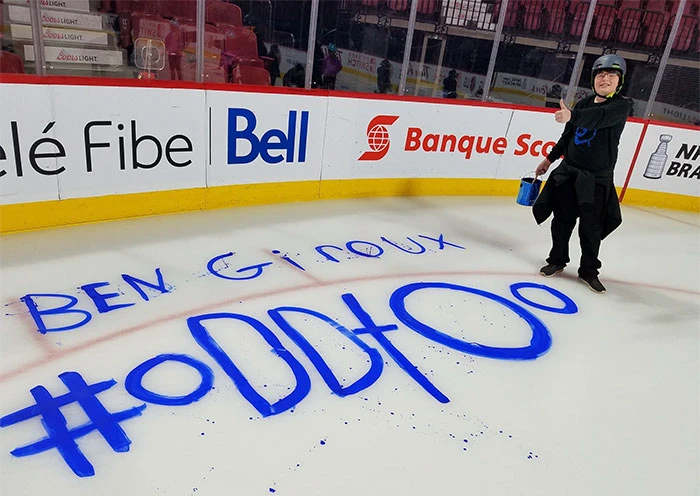
For anyone experiencing autism, a poem like Benjamin’s can be incredibly valuable. It’s proof that they are not alone, that there are others out there who feel the same way. But the value of the poem is actually broader than this – we don’t have to be diagnosed with autism to feel alone, out-of-step, or even “odd.”
We all feel this way from time to time. It’s natural, human. And so, a brave and emotionally resonant poem like this one serves as a comforting light, which all of us can benefit from.
Join our community of 1.5M readers
Like this story? You'll love our free weekly magazine.





